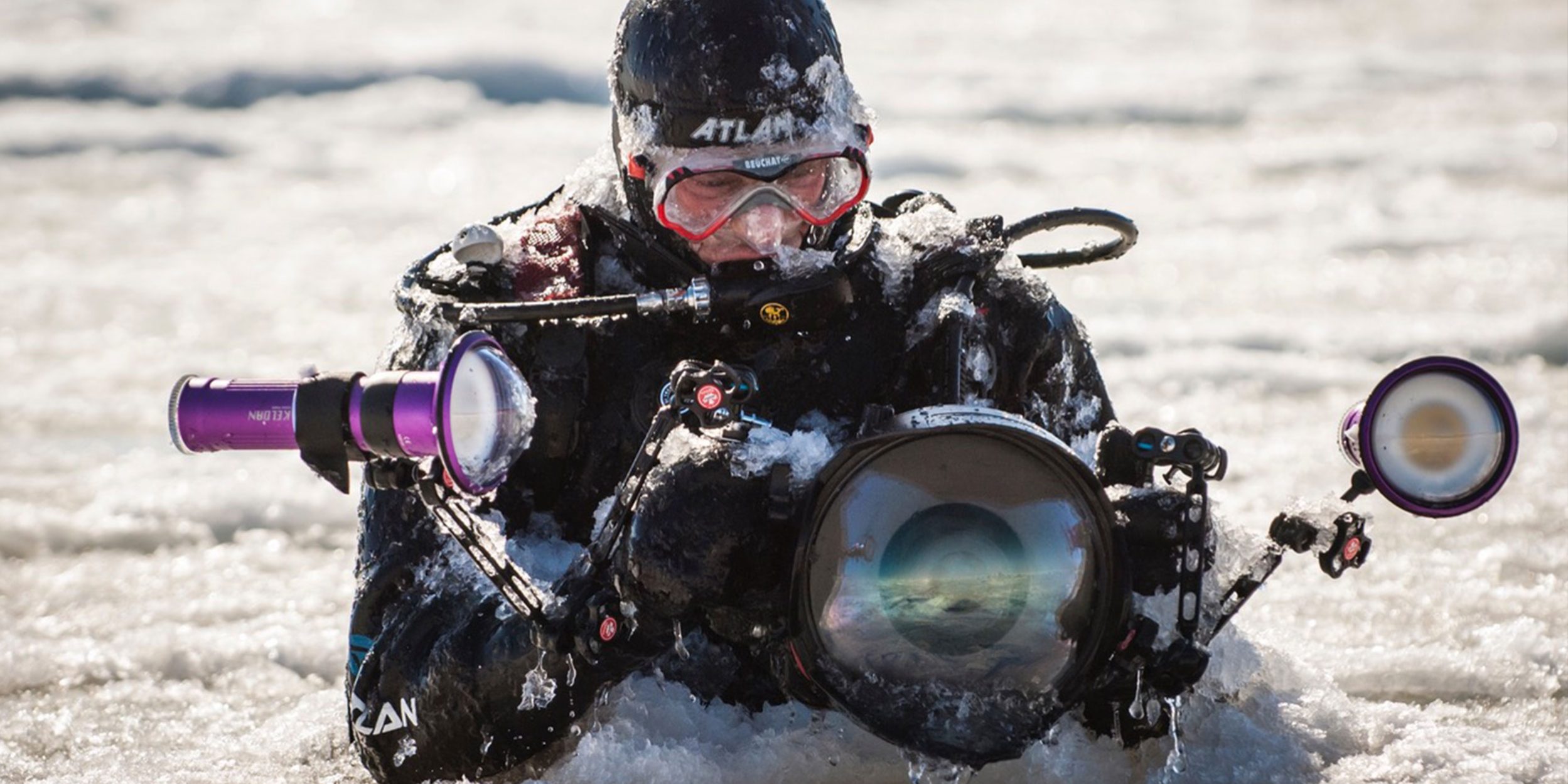ENCOUNTERING THE SUPERB — Born in the Magdalen Islands, Mario Cyr has always been drawn to water. As a young boy, he spent his summers on the beaches, and at the age of 16, he gradually became interested in sport diving, then commercial diving, which allowed him to acquire expertise in cold-water diving.
Having started working with an underwater camera in 1984, he was approached by National Geographic in 1991 to film walruses in the Arctic. That’s when everything really got started. Now a cinematographer, an underwater cameraman, a diving instructor, the owner of a diving store and school, and a speaker at his own family bistro, he never stops, and he is genuinely passionate about his job. This is an interview with a man who never gets cold feet in the face of a challenge.
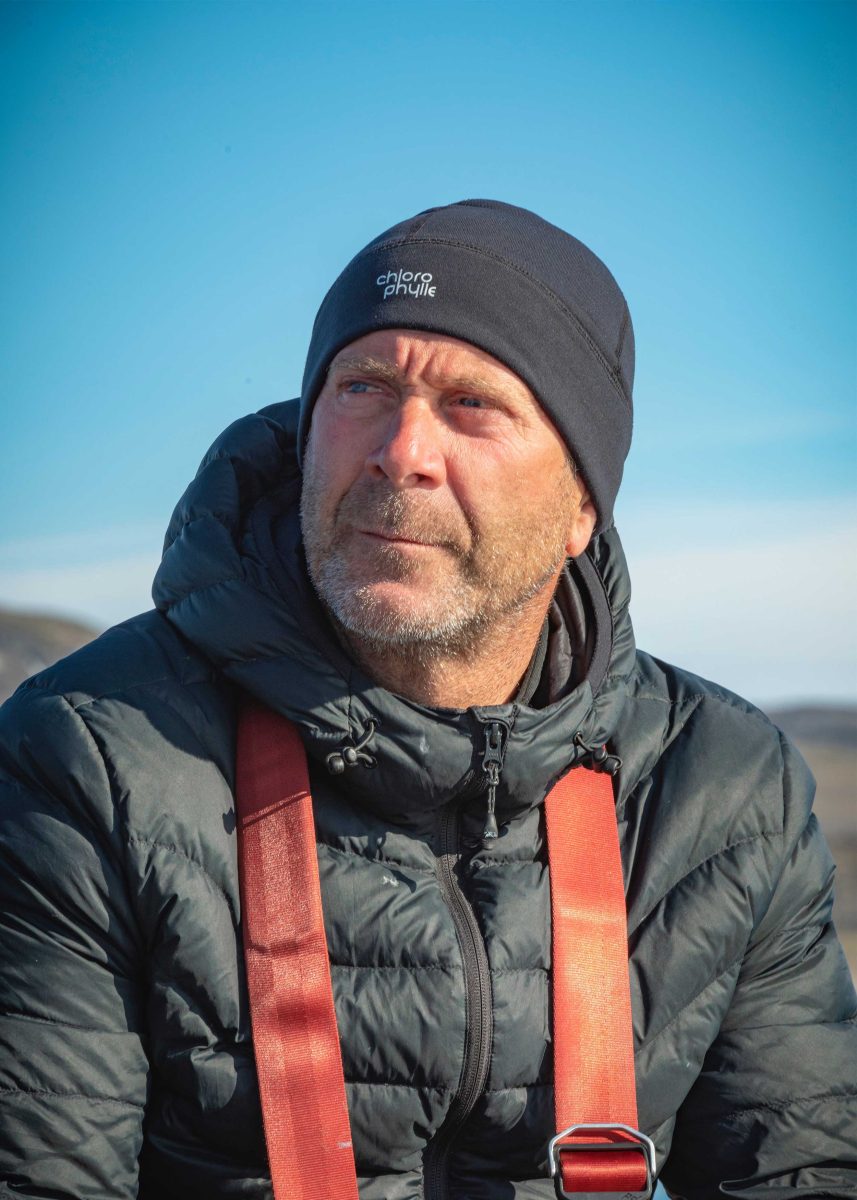
An educational dimension emerges from each activity you do. Is this transfer of knowledge part of the mission you’ve given yourself?
“Yes, to a certain extent. I’ve always liked talking about my job. However, it was my friends who pushed me to give talks, because at first, it wasn’t really in my plans. But every time I came back from an expedition, I always got tons of requests to go talk to people, meet with families, tell my stories. So, by force, I started giving talks, and it’s going well! I’m lucky enough to have a different and unusual background, so people are interested.”
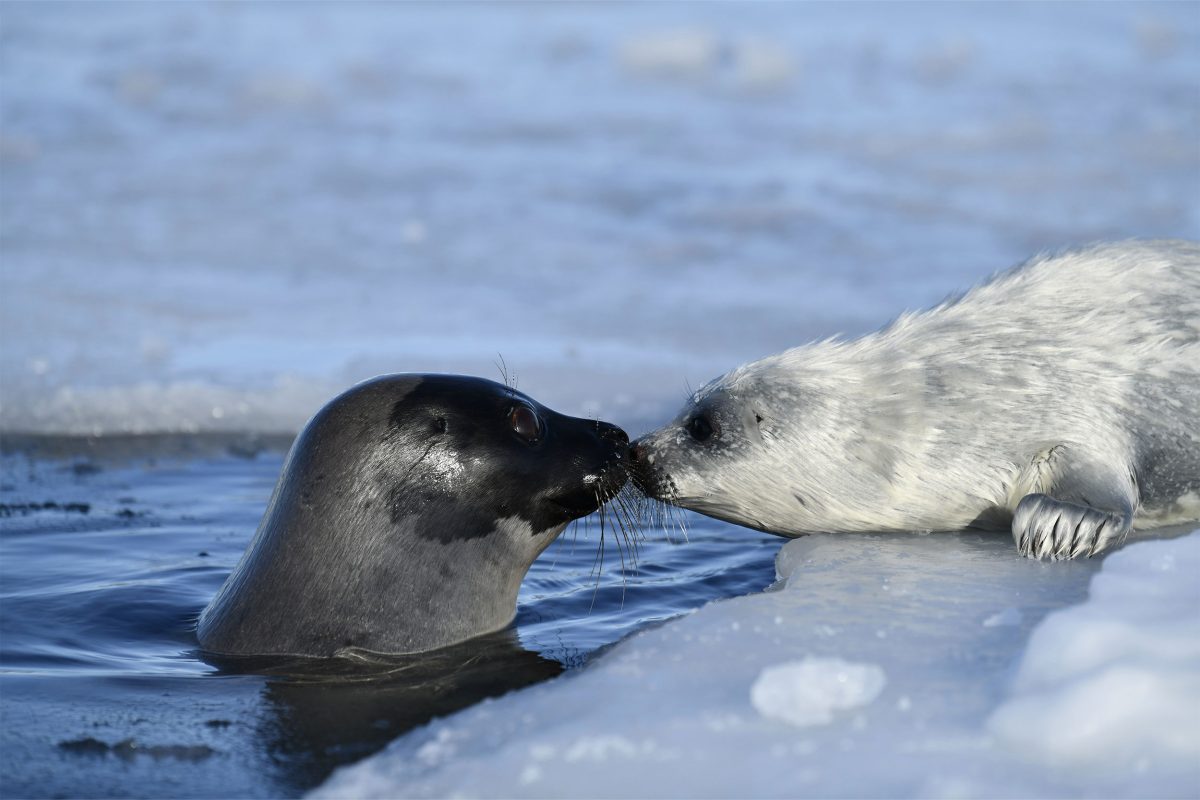
You’ve been to the Arctic 42 times. You’ve spent more than two years there if you put all your trips together. What can you tell us about it?
“I consider myself a privileged witness to its evolution. I started going there in 1991, and until 1993, things were going well. Those were the last years with normal ice and cold. Starting in 1994, climate change started to have an impact on that part of the world, with melting ice and rising temperatures. I was fortunate enough to be there when things were going great, until today, when they’re going much worse, and to be able to document both realities.
I remember May 1, 1995, when I was with Inuit guides who were all really surprised that it was raining. They had never seen rain at the beginning of May. It was very unusual! I’ve experienced things like that, where maybe I didn’t personally have any benchmark for comparison, but other people I was with told me there was a problem. And now, in 2021, we have to go to the Arctic two months earlier than in 1990 to film exactly the same thing. I used to film bowhead whales on July 15 in the Foxe Basin, and now, I have to go there on May 15 to see them in the same place. The difference is huge!
Another major change is the arrival of freshwater. The glaciers are melting at an incredible speed, and climate change is raising the temperature of the water, so it’s getting warmer and warmer. As a result, many equatorial species are migrating to the Arctic and Antarctic, toward the poles, so they can live in water where the temperature is still cool. We’re ending up with species we’ve never seen in the Arctic before, but they won’t all be able to live there! There are conflicts, intra-species competition, particularly when it comes to food. There are species that have never met before, such as Atlantic and Arctic cod, which are living side by side for the first time. Everything is changing, including migratory routes. An increase of a tenth of a degree has the power to displace entire schools of fish, which are very sensitive to water temperatures.
This phenomenon will lead to the disappearance of some species, but the proliferation of others, such as jellyfish, which prefer warm water to cold. On the other hand, if polar bears don’t adapt to the new conditions quickly, they are at risk of extinction.
All marine animals are currently in the process of adapting to the new climatic conditions as much as possible. The only species that isn’t adapting right now is humans. What is intelligence, at the end of the day? It’s the ability to adapt to your environment, to live in harmony with it.”
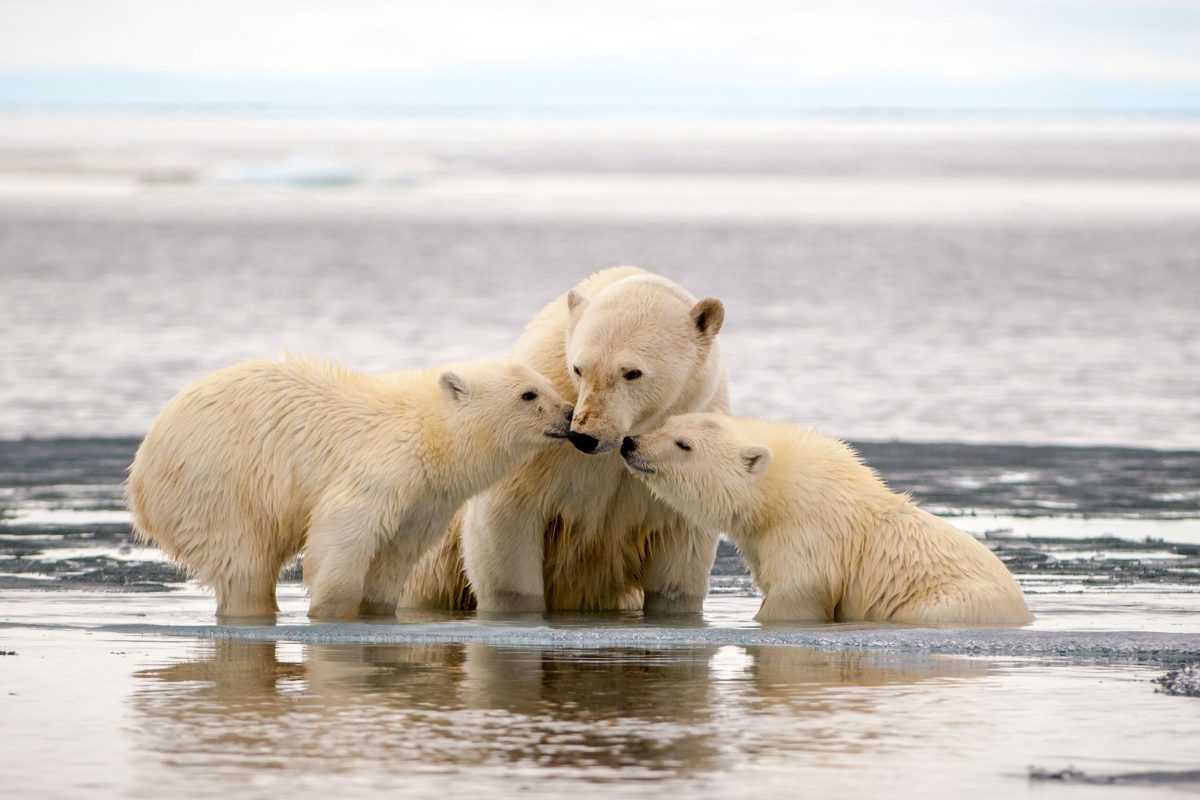
Do these changes worry you?
“For my part, I try not to be too moralistic. I’ve chosen to talk about climate change from a perspective of beauty, because it’s absolutely necessary to preserve this beauty for future generations. Many go to restrictions, but that’s not my approach. But if you’re asking me the question, yes, I’m extremely worried. It’s late now, probably too late. But we can still try to do better, because if we do nothing, we just risk multiplying the number of disasters by ten or twenty.”
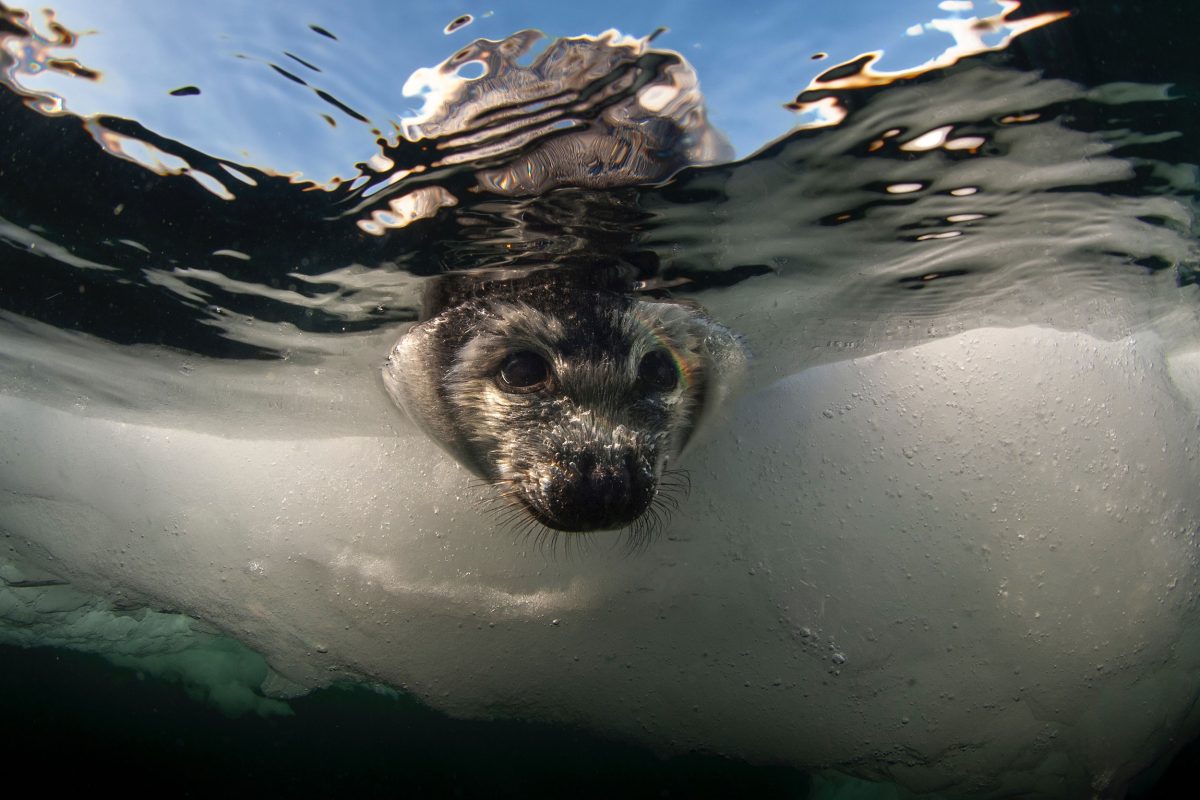
We often talk about the waste littering our oceans, but what about noise pollution?
“Sound travels four times faster in water than it does in air, so when we talk about the ocean being a ‘world of silence,’ it isn’t true! It’s quiet if nothing is happening, but if there is something, you can hear it four times louder! In water, humans hear with their whole skull, not just their ears, and the same goes for marine mammals. They hear much more than us, in fact, so the noises of boats, mining, or oil exploration totally disorient them, and many deaths are directly caused by noise pollution.”
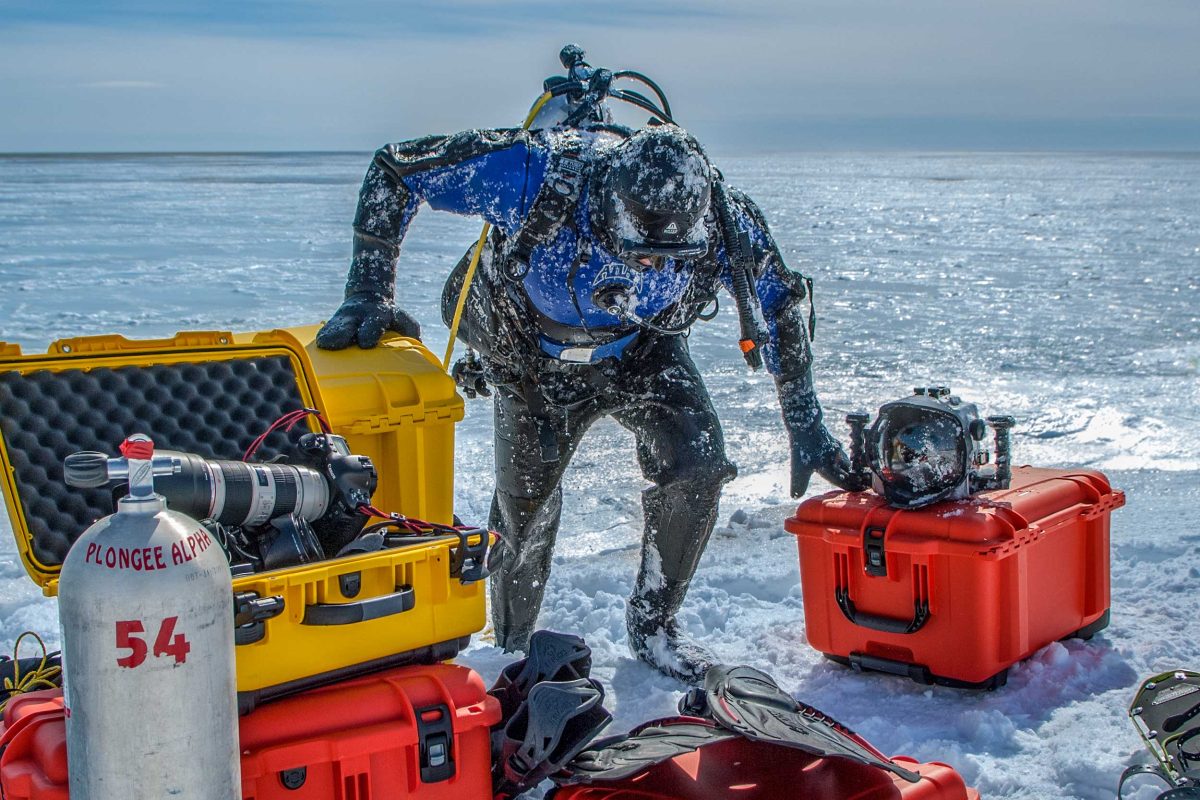
Does fear really come up on a daily basis, or does habit make you not think too much about it?
“Fear is part of the job, such as when you’re diving with walruses or polar bears. And that’s good, because it guides all our senses and makes us take calculated risks. It’s not something I ever thought to push out of my life. Instead, I try to control it.”
Water is known for its soothing power, the sound it makes, its movement, its freshness. Does it have this same effect on you, despite the intensity of your work?
“Yes, it’s extremely soothing! I live by the sea, on the Magdalen Islands, and I’m incredibly lucky to be able to live so close to the water. Even when I’m diving, unless I’m really nervous and surrounded by dangerous animals,it gives me a feeling of total well-being. I come away calmed, much better in my head, body, and mind. We come from the water, so I think, unless you’re afraid of it, there’s no better place to be.”




